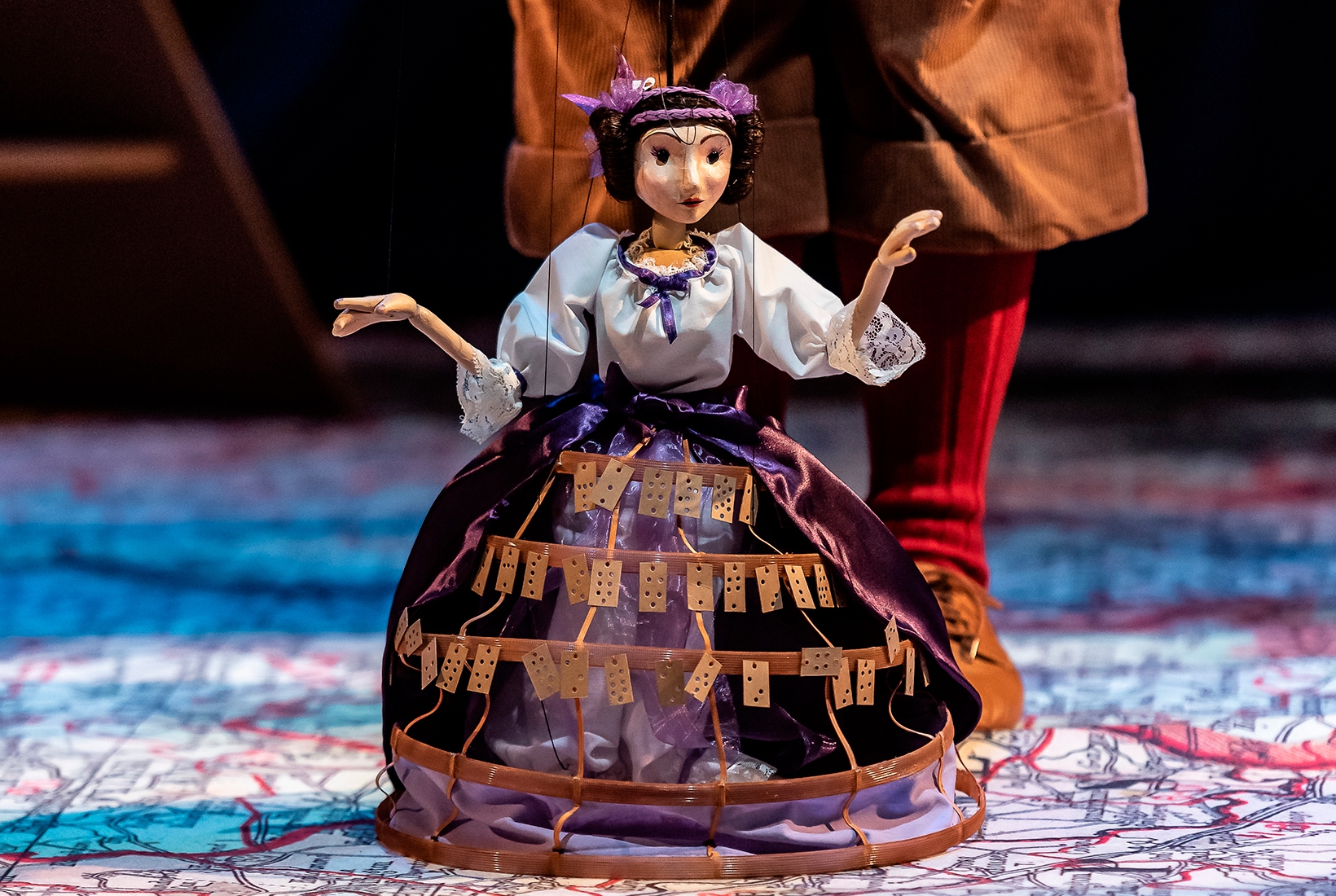Jina and the STEM Sisters is a blatant act of propaganda. And its intentions are excellent. This is a musical puppet show that sets out to encourage girls of eight and older to take up careers in science where women remain under-represented.
The heroine, Jina, is a schoolgirl who embarks on a hike through a dark forest haunted by ghosts and demons. It’s not clear to the viewer why she’s there or where she’s going. And she hasn’t a clue either. Perhaps the forest represents the world of intellectual repression she inhabits. ‘I ask a lot of questions,’ Jina tells us. ‘They say, “too many questions”.’
That’s an odd start. Do we live in a society that wags its finger at curious children? It’s hard to imagine a teacher or parent chastising a girl for being too inquisitive. And if the adults prevent her from investigating her world she can dodge their disapproval by using the internet. But Jina sees herself as a helpless drip. ‘I’m feeling very small,’ she whimpers, ‘like I don’t really matter.’ She’s visited by an all-female team of thinkers and pioneers who explain that she needs persistence and intellectual autonomy to become successful. Hypatia, a neo-Platonist philosopher of the 4th century AD, tells her: ‘Reserve your right to think.’ Which is sound advice. But Hypatia’s story ends unpleasantly. She’s attacked by a lynch mob screaming ‘Kill the witch’, and stoned to death.
Next up, Maria Sibylla Merian, an entomologist of the 17th century, who teaches Jina to collect specimens. ‘Here little beetle,’ calls Merian. ‘I know you’re here somewhere.’ This technique works only with well-trained insects who speak English. Jina meets Marie Curie, who explains that her work with radioactive materials led to her premature death from cancer. Oh God. Another gruesome detail.
If you want a work of propaganda that brings more girls into science, commission a man
Ms Curie’s songs are filled with phrases that have little or no meaning.
I discovered radium in 1898 Which is, I think, we all agree, a most impressive date.
This sounds like padding.










Comments
Join the debate for just £1 a month
Be part of the conversation with other Spectator readers by getting your first three months for £3.
UNLOCK ACCESS Just £1 a monthAlready a subscriber? Log in